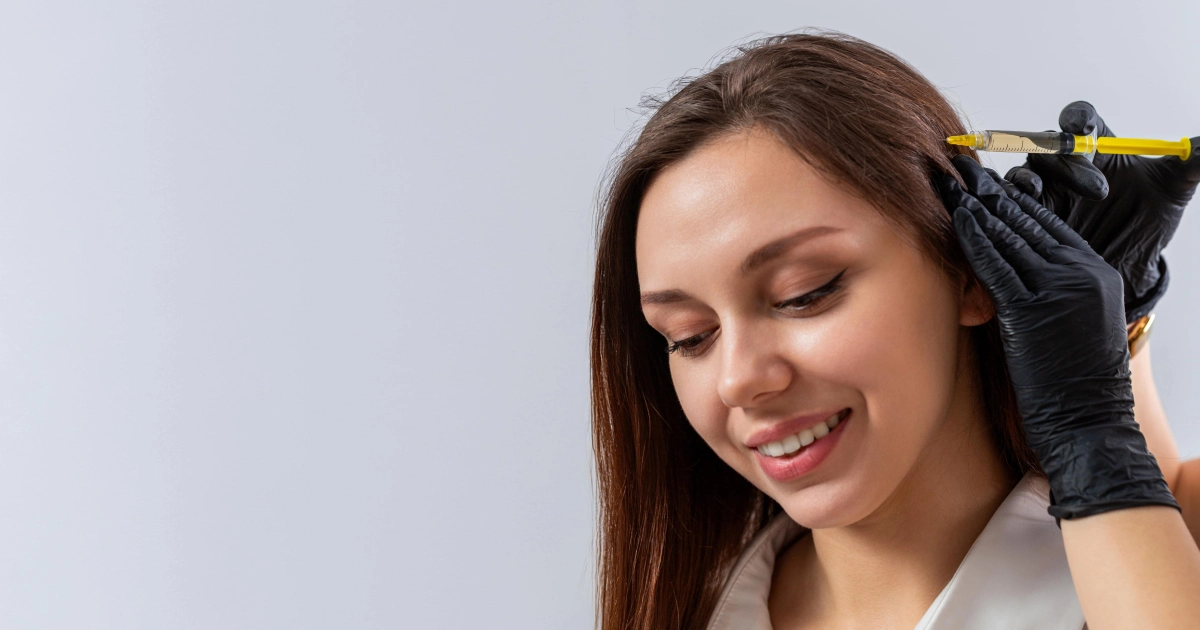April is Rosacea Awareness Month, a time dedicated to shedding light on a common but often misunderstood skin condition. Rosacea affects millions of people worldwide, causing redness, visible blood vessels, and in some cases, thickened skin on the face. At RenovoMD, we believe in empowering our clients with knowledge about their skin concerns, so let’s delve into what rosacea is, its symptoms, triggers, and some of the available treatment options we have at our practice.
What is Rosacea?
Rosacea is a chronic skin condition that primarily affects the face, typically appearing after the age of 30. While the exact cause of rosacea remains unknown, factors such as genetics, environmental triggers, and abnormalities in blood vessels are believed to play a role in its development.
Symptoms of rosacea can vary from person to person but often include:
- Persistent facial redness, particularly on the cheeks, nose, forehead, and chin.
- Visible blood vessels (telangiectasia) on the face.
- Pimples or bumps resembling acne.
- Thickened skin, especially around the nose (rhinophyma).
- Burning or stinging sensations on the face.
- Eye irritation, known as ocular rosacea.
Identifying Rosacea Triggers:
Understanding and avoiding triggers can help manage rosacea flare-ups. Common triggers include:
- Sun exposure: UV rays can worsen rosacea symptoms.
- Temperature extremes: Hot weather, saunas, and hot baths can trigger flare-ups.
- Spicy foods and alcohol: These can dilate blood vessels and exacerbate redness.
- Stress: Emotional stress can trigger rosacea symptoms.
- Certain skincare products: Harsh chemicals and fragrances may irritate sensitive skin.
Rosacea Treatment Options:
While there is no cure for rosacea, various treatment options can help manage symptoms and drastically improve the appearance of the skin. At RenovoMD, we offer personalized treatment plans tailored to each client’s unique needs. Some common treatments include:
- Topical medications: Prescription creams or gels containing ingredients such as azelaic acid, metronidazole, or sulfur can help reduce redness and inflammation.
- Oral medications: In some cases, oral antibiotics or isotretinoin may be prescribed to control symptoms.
- Laser therapy: Intense Pulsed Light (IPL) or laser therapy can effectively target visible blood vessels and reduce redness.
- Skincare products: Gentle skincare products designed for sensitive skin can help soothe and protect the skin barrier.
- Lifestyle modifications: Avoiding triggers such as sun exposure, spicy foods, and stress can help prevent flare-ups.
Empowering Our Clients:
RenovoMD is committed to empowering our clients with the knowledge and resources they need to manage their rosacea effectively. During Rosacea Awareness Month and beyond, we encourage individuals with rosacea to seek professional guidance and support. Together, we can navigate this journey towards healthier, more radiant skin.
If you or someone you know is struggling with rosacea, we’re here to help. Contact us today to schedule a consultation and take the first step towards clearer, calmer skin. Let’s raise awareness and support those affected by rosacea.



